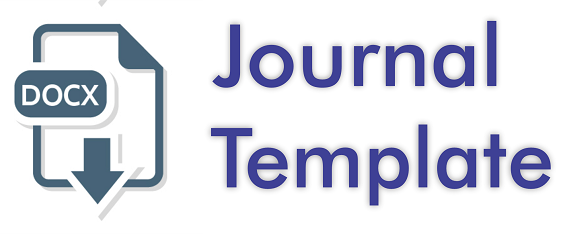Strategi Pengendalian Inflasi dalam Perspektif Ekonomi Islam
DOI:
https://doi.org/10.59107/ri.v2i2.50Keywords:
Control, Inflation, Islamic EconomicsAbstract
Inflation is a problem that is always faced in the economy, and inflation is also the main agenda of politicians and government policy makers. This research aims to find out how to control inflation from an Islamic Economics perspective. This research is a literature study. Sources of information and data used in articles come from scientific journals and books that are appropriate to the topic being studied. The research results reveal that inflation can be controlled through the implementation of a Sharia-based monetary system, currency management from an Islamic perspective, fair distribution of income and investment in the productive sector as well as supervision and regulation through economic regulations. This research provides a new contribution by combining conventional economic analysis with the principles of Islamic Economics in understanding and overcoming inflation. The results of this research show that the inflation control strategy from an Islamic Economics perspective offers a comprehensive and sustainable solution, taking into account moral, social and economic dimensions. Implementing these strategies requires strong commitment from all parties. This research paves the way for further, more in-depth research on the implementation of inflation control strategies from an Islamic Economics perspective in various contexts and scales.
Downloads
References
Amirotul Nur’Azmi Naqiyya, Nuril Hidayati, Shinta Eka Widamayanti, & Suryadini Diyah Marwati. (2023). Pengendalian Inflasi Di Indonesia Perspektif M. Umer Chapra. Istithmar, 7(1), 50–65. https://doi.org/10.30762/istithmar.v7i1.637
Anggara, W., Shawab, N., Majid, M. S. A., & Harahap, I. (2023). Economic Stability In Islamic View : Approach To Controlling Inflation. 1366–1372.
Arjunita, C. (2016). Faktor-Faktor yang Mempengaruhi Inflasi Di Indonesia. Jurnal Kajian Ekonomi Dan Pembangunan, 5(2).
Ball, R. J. (2017). Inflation and the Theory of Money. Routledge.
Barro, R. J. (2007). Milton Friedman: Perspectives, particularly on monetary policy. Cato J., 27, 127.
Bawono, A. (2019). Factors Influencing The Inflation of Indonesia In Islamic Perspectives. Jurnal Ilmiah Ekonomi Islam, 5(2), 81–88. https://doi.org/10.29040/jiei.v5i2.579
Fadilla. (2017). Perbandingan Teori Inflasi Dalam Perspektif Islam dan Konvensional. Jurnal Islamic Banking, 2(2), 1–14.
Hasan, A. (2005). Mata Uang Islami: Telaah Komprehensif Sistem Keuangan Islami. PT Raja Grafindo Persada.
Juli, N., & Ghofur, M. A. (2024). Pandangan Ekonomi Islam Tentang Pengendalian Inflasi , Kebijakan Moneter Dan Fiskal. 1(3), 384–392.
Karim, A. (2017). Ekonomi Makro Islam. Rajawali Pers.
Kia, A. (2014). Inflation: Islamic and conventional economic systems - Evidence from the United States. International Journal of Economic Perspectives, 8(3), 19–40.
Kurniawati, F. (2019). Pengendalian Inflasi Dalam Perspektif Ekonomi Islam. Adzkiya : Jurnal Hukum Dan Ekonomi Syariah, 6(2). https://doi.org/10.32332/adzkiya.v6i2.1252
Mahanum, M. (2021). Tinjauan Kepustakaan. ALACRITY : Journal of Education, 1(2), 1–12. https://doi.org/10.52121/alacrity.v1i2.20
Mankiw, G. (2010). Macroeconomics. In Worth Publishers: Vol. 3o ed.
Mishkin, F. S. (2007). The Economics of Money, Banking, and Financial Markets. Pearson education.
Nasution, A. W., & Majid, M. S. A. (2023). Inflasi dan Stabilitas Ekonomi : Analisis Perbandingan Perspektif Islam dan Konvensional Inflation and Economic Stability : A Comparative Analysis between Islamic and Conventional Perspectives. 23(2), 236–251.
Pratama, F. A., & Giatman, M. (2021). Manajemen Kepemimpinan Kepala Sekolah dalam Membangun Kompetensi Guru. 7(1), 35–50. https://doi.org//https://doi.org/10.24090/jk.v1i1.530
Sari, V. I., Wiyono, G., & Mujino. (2021). Analisis Pengaruh Inflasi, Suku Bunga dan NPF Terhadap Profitabilitas ROA Bank Umum Syariah Di Indonesia. Jurnal Ekobis Dewantara.
Siddiqi, M. N. (1996). Role of Fiscal Policy in Controlling Inflation in Islamic Framework. King Abdulaziz University, an Unpublished Manuscript. Available At< URL Http://Siddigi. Com/Mns/FiscalPolicy. Html>, Accessed On, 11, 2008.
Sukirno, S. (2010). Makro Ekonomi, Teori Pengantar. PT Raja Grafindo Persada.
Totonchi, J. (2011). Macroeconomic Theories of Inflation. International Conference on Economics and Finance Research, 4(1), 459–462.
Triono, D. C. (2003). Pertumbuhan Ekonomi Versus Pemerataan Ekonomi. Irtikaz.
Zakiyah, K. (2018). Peran Pengendalian Inflasi Dalam Tinjauan Perspektif Al-Qur ’ an The Role of Controlling Inflation in the Perspective of Al-Qur ’ an. The International Journal of Applied Business, 2(1), 20–28.
Zuwardi, & Padli, H. (2019). DETERMINAN PROFITABILITAS BANK UMUM SYARIAH. At-Tijaroh : Jurnal Ilmu Manajemen Dan Bisnis Islam, 5, 201–215.
Downloads
Published
Issue
Section
License
Copyright (c) 2023 RISALAH IQTISADIYAH: Journal of Sharia Economics

This work is licensed under a Creative Commons Attribution 4.0 International License.
License
The non-commercial use of the article will be governed by the Creative Commons Attribution license as currently displayed on http://creativecommons.org/licenses/by/4.0/. This licence allows the user to distribute, remix, tweak, and build upon the licensed work, including for commercial purposes, as long as the original author is credited.
Author’s Warranties
The author warrants that the article is original, written by stated author/s, has not been published before, contains no unlawful statements, does not infringe the rights of others, is subject to copyright that is vested exclusively in the author and free of any third party rights, and that any necessary written permissions to quote from other sources have been obtained by the author/s.
User Rights
Under the Creative Commons Attribution license, the author(s) and users are free to share (copy, distribute and transmit the contribution).
Rights of Authors
Authors retain the following rights:
- copyright, and other proprietary rights relating to the article, such as patent rights,
- the right to use the substance of the article in future own works, including lectures and books,
- the right to reproduce the article for own purposes, provided the copies are not offered for sale,
- the right to self-archive the article.
Co-Authorship
If the article was prepared jointly with other authors, the signatory of this form warrants that he/she has been authorized by all co-authors to sign this agreement on their behalf, and agrees to inform his/her co-authors of the terms of this agreement.
Termination
This agreement can be terminated by the author or RISALAH IQTISADIYAH: JOURNAL OF SHARIA ECONOMICS upon two months’ notice where the other party has materially breached this agreement and failed to remedy such breach within a month of being given the terminating party’s notice requesting such breach to be remedied. No breach or violation of this agreement will cause this agreement or any license granted in it to terminate automatically or affect the definition of RISALAH IQTISADIYAH: JOURNAL OF SHARIA ECONOMICS.
Royalties
This agreement entitles the author to no royalties or other fees. To such extent as legally permissible, the author waives his or her right to collect royalties relative to the article in respect of any use of the article by RISALAH IQTISADIYAH: JOURNAL OF SHARIA ECONOMICS or its sublicensee.
Miscellaneous
RISALAH IQTISADIYAH: JOURNAL OF SHARIA ECONOMICS will publish the article (or have it published) in the Journal, if the article’s editorial process is successfully completed and RISALAH IQTISADIYAH: JOURNAL OF SHARIA ECONOMICS or its sublicensee has become obligated to have the article published. RISALAH IQTISADIYAH: JOURNAL OF SHARIA ECONOMICS may conform the article to a style of punctuation, spelling, capitalization and usage that it deems appropriate. The author acknowledges that the article may be published so that it will be publicly accessible and such access will be free of charge for the readers. RISALAH IQTISADIYAH: JOURNAL OF SHARIA ECONOMICS will be allowed to sublicense the rights that are licensed to it under this agreement.



.png)
.png)






